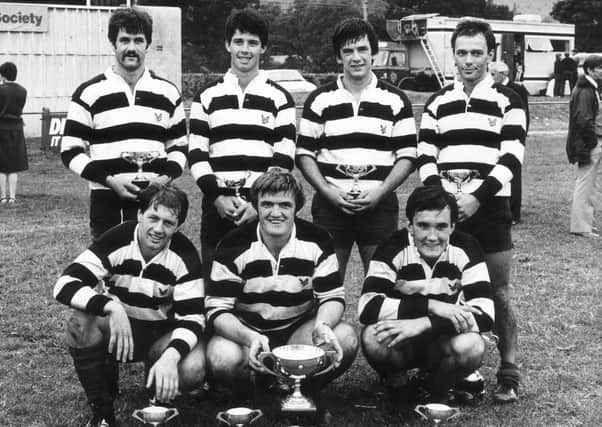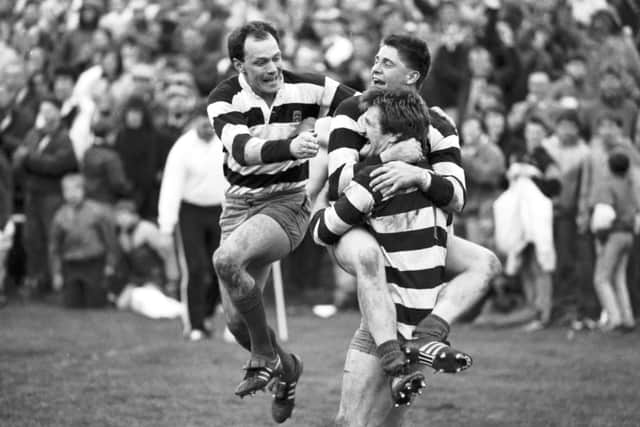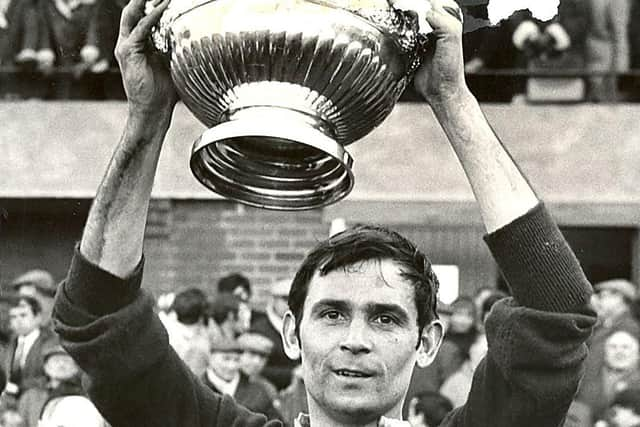Allan Massie: Kelso of the 1980s played sevens just about as well as any club ever did


Well, it should have been the Melrose Sevens today, a sad thought made all the sadder a few days ago when one heard of Dougie Morgan’s death for he was an outstanding Sevens player in a very good Stewart’s-Melville team in the late Seventies and early Eighties, along with a selection of Calders and Brewsters.
The Melrose club and successive committees have done remarkably to have kept their Sevens as a popular and major event in the rugby calendar, popular enough for the BBC to have continued to televise the event.
Advertisement
Hide AdAdvertisement
Hide AdThe Borders Sevens circuit isn’t what it was in the amateur days, being deprived of the glamour element provided by the presence of current Scottish internationals, and indeed international players in some of the guest teams. I remember writing rather sadly almost 20 years ago that as youngsters Chris Paterson, Marcus di Rollo and Mike Blair had all been named Player of the Tournament at Melrose, and that it was sad that none of them had appeared there since becoming full-time professionals. Now one thinks what fun it would be to see current stars like Stuart Hogg and Darcy Graham in Hawick colours at Melrose or Finn Russell turning out there for a select Seven such as the Co-optimists.


It’s also the case that players in the guest teams will rarely be known, even by name, to spectators, or indeed commentators, who have anyway a hard job covering a day’s tournament, so hard that Bill McLaren, despite loving the Melrose Sevens, described a commentary on the day as “a nightmare”. From the early Eighties, when we moved to the Borders, I can recall seeing international stars like Jean-Pierre Rives, Serge Blanco and Mark Ella at Melrose.
I suppose the Kelso Seven of the Eighties played the short game just about as well as any club Seven ever did, or perhaps could. There were a few changes of personnel, changes which never seemed to make much difference. The maestro or conductor of the orchestra was Andrew Ker at fly-half. Andrew was a very fine player in the 15-a-side game, who might have had more than a couple of Scottish caps if he hadn’t coincided with John Rutherford. John was the best Scottish fly-half of the amateur days – in my lifetime anyway – but Andrew was the better Sevens player. With abrupt acceleration and very quick over ten or a dozen yards, he had the coolest of heads and a complete understanding of the geography of the short game.
Outside him there was usually the reliable Euan Common at centre and the flier Roger Baird to score innumerable tries. There was no great glamour to his scrum-half Bob Hogarth who, at a time when there was never a No 9 vacancy in the South team, let alone the Scotland one, never perhaps got his due except in Kelso. That Kelso Seven might feature an all international set of forwards: Gary Callander, the hooker, the formidable Eck Paxton with his socks rolled down to his ankles, and John Jeffrey, the most tireless of runners, scorer and creator of daftly improbable tries.
Even so the most memorable single tie I remember from the Borders circuit was at Netherdale, not The Greenyards: the final between Gala and Loughborough College in, 1969. Loughborough, it should perhaps be explained, was the then a teacher-training college, specialising in physical education. (A later graduate was Clive Woodward.) Their players were not only skilful but very fit, almost certainly fitter than most club players. I think they had a very fast England wing called Fielding, and that they had reached the final after a series of spectacular wins.


They were never in it, and lost something like 35-6, in the days when a try was worth only three points. Indeed in the second half they never had the ball at all.
In Sevens now the team that has scored a try kicks off to restart the game and, in effect, give the ball back to their opponents. But in those days the law was the same in Sevens as it still is in the 15-a-side game. So the team that had conceded kicked off, this giving them the chance to get into the opposition half. Well, in that second half, the wretched students kicked off and Gala never gave them the ball back. They kept it, moved it about, toying with the opposition until a gap appeared, and they scored a try. Then they did it all over again and again. In Sevens a half lasts ten minutes in the final; it must have felt much longer to Loughborough.
I can’t remember the Gala Seven, though I know the show was run by Duncan Paterson (uncle of Chris) and that the inimitable Peter Brown was in his element, giving the impression of making up the game as he went along. I think Jock Turner may have been at fly-half and Drew Gill on the wing.
It was remarkable. I don’t think this game alone caused the kick-off law to be changed for Sevens, though it might well have done so.
Comments
Want to join the conversation? Please or to comment on this article.